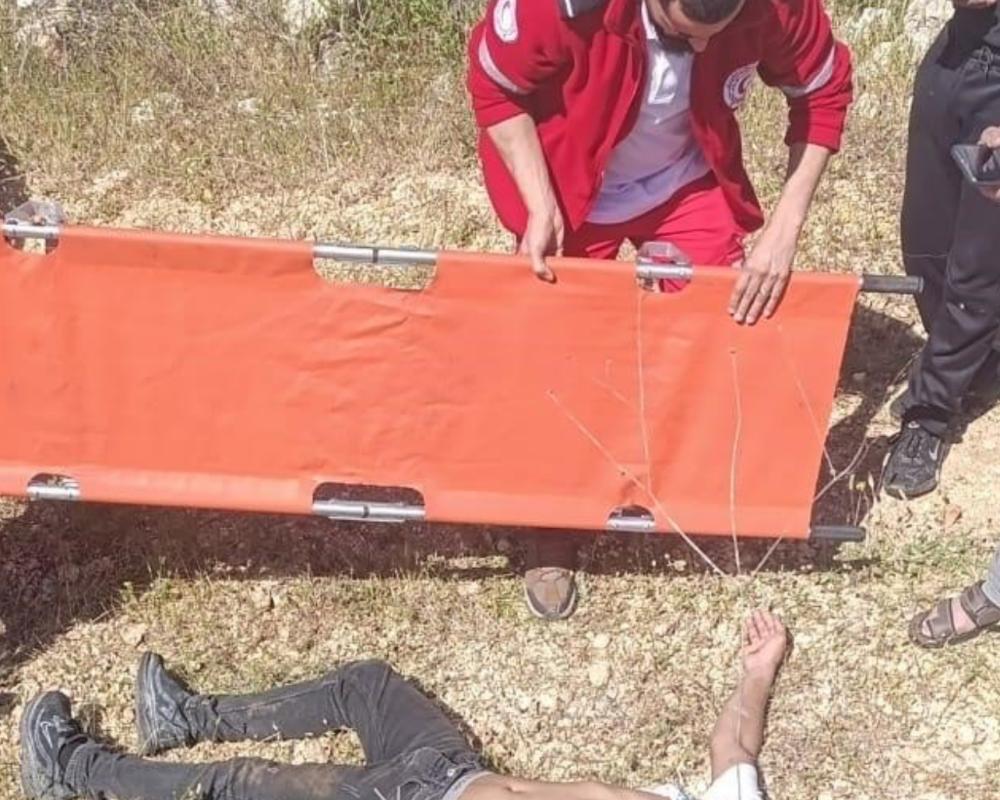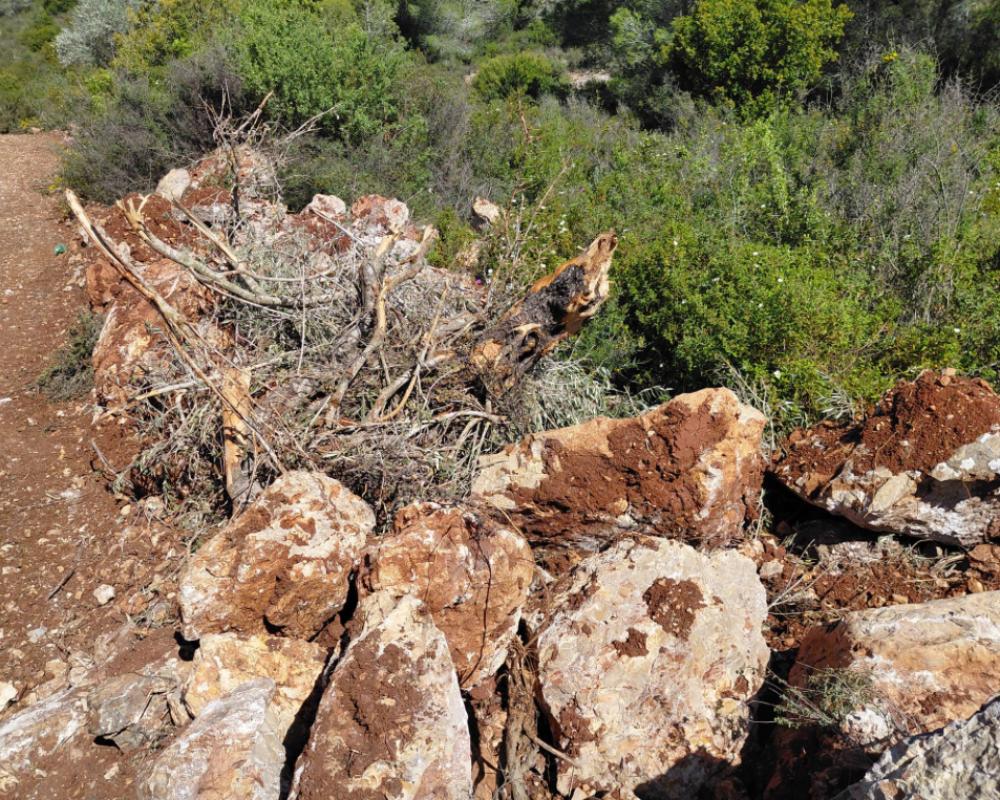
BETHLEHEM, West Bank /PNN /
Israeli settlers carried out a series of violent attacks across multiple West Bank governorates on Friday, injuring several Palestinians and damaging property, including vehicles and olive trees, in what witnesses described as coordinated rampages carried out under the protection of Israeli forces.
In the Salfit governorate, settlers attacked Palestinians in the village of Farkha and the town of Biddya, southwest of Salfit. Local sources said settlers assaulted a group of Palestinians in the "Spring" area of Farkha while Israeli soldiers detained the victims for several hours.
Three additional Palestinians were injured in another settler assault in the Khillet Hassan area, north of Biddya. Witnesses identified the victims as Ahmed Sarsour from the nearby village of Sarta, and brothers Saqr and Abdulrahim Al-Aqra from Biddya. Sarsour was taken to Salfit Governmental Hospital, while the brothers were reportedly detained and transferred to the Israeli settlement outpost of Yakir.

The Khillet Hassan area has seen ongoing settler attempts to seize land by installing caravans and grazing livestock in an effort to establish de facto control.
In the southern West Bank, settlers attacked residents and properties in the towns of Sa’ir, Yatta, and Al-Dhahiriya in Hebron governorate. In Sa’ir’s Qawaziba area, armed settlers attempted to seize Palestinian-owned land.
Meanwhile, settlers installed water pipes on the land of Saeed Al-Amour in Khirbet Al-Rakeez, in the Masafer Yatta area. Al-Amour was reportedly shot in the leg by settlers on Thursday and remains hospitalized at Soroka Medical Center under Israeli custody. His 15-year-old son Ilyas was also detained.
In Al-Dhahiriya, settlers raised the Israeli flag on a tent they pitched on Palestinian land in the ‘Anab area, signaling plans to establish a new outpost.
Israeli forces and settlers have escalated efforts to seize land and expand settlements in Area C of the West Bank, with frequent incidents of harassment, land seizure, and road construction.
In the Ramallah area, settlers uprooted hundreds of olive trees and bulldozed approximately 2,000 dunams (500 acres) of land in the village of Umm Safa, northwest of the city.
Maron Sabah, head of the Umm Safa village council, told local media that settlers destroyed at least 500 olive trees, many of them decades old, and constructed a dirt road linking the settlements of Halamish and Ataret. He said Israeli bulldozers have been working in the area for four days, preventing locals from reaching their lands.

Sabah warned that settlers intend to turn hundreds of dunams in the southern part of the village into a grazing outpost. “There is a clear plan to displace the villagers and create a large settlement bloc by linking existing settlements and taking over remaining land,” he said. Umm Safa has lost most of its 4,000-dunam area to settlement expansion, with only 300 dunams remaining under Palestinian use.
Further north in Nablus, dozens of settlers, escorted by Israeli forces, stormed the summit of Jabal Al-‘Arma in the town of Beita, provoking residents with loud, disruptive behavior.
In a separate incident, Jibran Qaddous, head of the Iraq Burin village council, said settlers continued bulldozing land near the Bracha settlement to pave a new road — a move seen as an attempt to annex more village land.
In the Jericho governorate, settlers attacked the Arab al-Malehat Bedouin community west of the city. Hassan Malehat, director of the Bedouin rights group Al-Baydar, said settlers closed the main road near the community, carried out a second assault shortly after, and herded sheep between Palestinian homes — a tactic aimed at intimidating residents and forcing them to abandon the area.
The coordinated settler attacks come amid heightened tensions across the occupied West Bank, where rights groups have documented a sharp rise in settler violence, often carried out with the backing or acquiescence of Israeli forces.